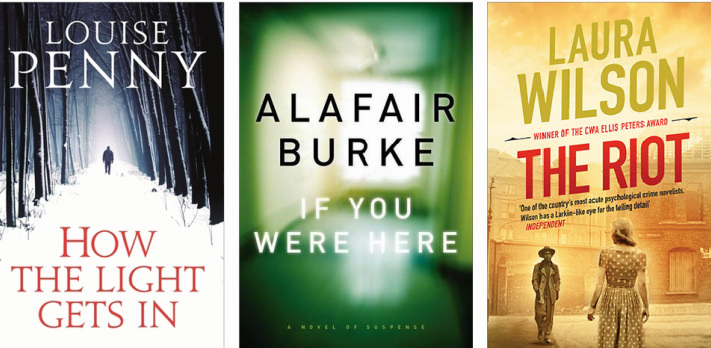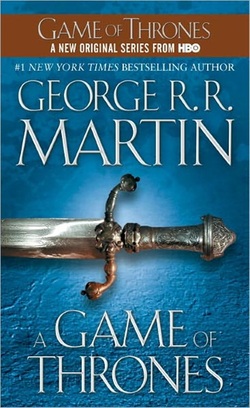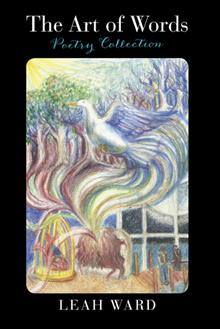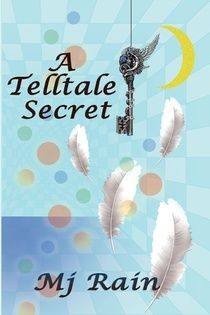
The literary world has changed as much as anything else over the past half-century, and for many years now a war has been going on amongst its members (not the paper versus e-book debate, which will fizzle out long before this).
On one hand stand the genre authors and their legions of fans. Until recently, these were most prominently represented by crime writers. These days, the massive surge in “young adult” books and the endless dead-horse-flogging of the supernatural types have taken on the mantle. Unfortunately, in both cases, the very worst of the writers seem to get most of the attention (without naming names, just take the top one of each camp’s sales list).
The other side is a quieter place, home to the authors of literary fiction. These writers, spread around the world and with a prominent enclave in the northeastern United States, are the intellectuals. They are the defenders of the old literary traditions, well-educated men and women with an appreciation for the reality around us and the ability to write powerful prose and craft effective stories without bringing up dragon-riding vampires afflicted with lycanthropy.

Whilst they’re busy frothing at the mouth, however, they may be missing the point. Whereas mindful versus mindless subject matter have for long been the order of the debate, no one seems to be talking about originality. They should be. Here’s why.
Some genres, such as crime fiction, are essentially exempt from this potential flaw, since every conceivable detective novel plot line has appeared in one form or another some hundred odd times. The worst offender and the one most attacked by its detractors is fantasy fiction. In a genre so completely unlimited by its very nature, whose own writers and readers bemoan their rivals’ “lack of imagination”, why are we faced with essentially the same thing every time? How many more vampire novels can there possibly be? How many more authors are going to consider dragons an acceptable plot device or employ a supernatural deus ex machina ending instead of working out how to resolve a storyline? Why do the sword-and-fire-lizard variety of fantasy novels always have to be a thousand pages long, have either the weapon or the winged beast in the title and be populated by a cast of characters with ridiculous, vaguely similar names all ripped off from Tolkien’s Elvish? Surely one of them, by now, could have come up with a cleverer way of naming their protagonists and lending some semblance of a recognisable ethnic or linguistic trend to their imaginary cultures?
Breathe. There is no answer to any of these questions. What we can do rather than answer them, however, is turn them on someone else. No one within the literary community, neither journalist nor author and certainly no respectable publication, points the same weary criticism at literary fiction.
March this year saw the release of Nickolas Butler’s Shotgun Lovesongs. This thoughtful novel set in a remote, crumbling town in Wisconsin tells of a group of childhood friends brought back together by circumstance, only to discover what has become of their home and of themselves in the interim.
If you think you’ve heard this somewhere before, then you’re right. If you’re trying to remember where or even in which book, don’t bother – there are at least twenty of them. This synopsis is the blueprint for half of the literary novels of the last twenty years, many of which raked awards and were more highly regarded than any genre author’s work can ever be before they’d even been picked up and read. Julian Barnes’ Booker-winning A Sense of an Ending, the indulgent existential ramblings of Murakami, Nicci Gerard’s The Winter House and so on. Death is almost always involved in these plots, set against adolescent reminiscing, lost childhood innocence and either a crumbling home town or an unforgiving landscape. Telling one from another based on description is like walking into either the crime or high fantasy section of your local paperback emporium with a blindfold and a donkey-tail pin.
If it seems like the young adult faction has done an even more annoying job of this than the others in recent times, that’s because it has – but not for the same reasons. It seems as though the dystopian novels of teenagers fighting through some bizarre and completely illogical state-imposed challenge (be it death-fights or nationwide school-house-style factions) will never end. The thing is, writing has always been a business for most authors, especially those working in easily categorised fields. The most successful and most shameless crime authors overshadow their would-be rivals with sheer output, teaming up with co-authors and unnamed ghost-writers to drench the market in as many half-baked books as possible. Companies like Alloy Entertainment have now managed to one-up them, creating literal story-factories where unpublished, desperate writers in their teens and twenties are paid a pittance to churn out supernatural and dystopian novels for the young adult market to devour. Genre readers are notoriously vociferous, they need more books and they need them now. All these people have done is provide an effective means to meet this need, and it’s more than a little too late in the game to complain that business has sucked the soul out of fiction writing. It’s been a long, long time since it was about “art”.

Thankfully, there is a solution to all of this. As in most cases of conflict, it’s simply to stop and step back. At some point in every reader’s life, someone has told them not to judge a book by its cover. It’s a simple and wise piece of advice that serves as a metaphor for how we should learn to treat others. Platitudes aside, it also works literally. The chances are, if you’re not a crime fiction fan, you’ve picked up a random new addition to a series – be it fast-paced thriller, a gore-fest that claims to be “disturbing” or a slow-burning, thematic detective yarn – read the back and scoffed the scoff that says “heard it”. Non-fantasy readers merely have to see the word above the shelves to have the same reaction. Spotting an illustrated book cover sporting dragon, horse or vampire will send them growling bitterly into the non-genre-labelled Fiction section, home to the good stuff for people who actually think. There, they will pick up a new paperback, turn it over and read this synopsis:
“This thoughtful novel set in a remote, crumbling town in Wisconsin tells of a group of childhood friends brought back together by circumstance, only to discover what has become of their home and of themselves in the interim.”
That’s right. Heard it. It’s the same book again.
The fact of the matter is that, no matter what category they might fit into, all of these books look basically alike. Originality is damned close to completely impossible to achieve, a mythical concept that is incredibly rarely snagged and often without anyone even noticing. Equally impossible, however, is for any of these books to actually be the same when we open them. At anywhere between two hundred and a thousand pages in length, populated solely by the outpouring’s of one person’s mind and influenced by the exact, unique formula of things they have read, watched and wished to be and to write about throughout their entire lives, every book really is the special little snowflake our parents tried to tell us we were. Nigh on every story has been told, even when any supernatural element you can think of is at your aspiring fingertips. Every life, in its synopsisized form, has been lived already, and no brooding social commentator examining the perils of their own existence in a Wisconsin barn is going to bring anything new to the table.
The thing that really separates them all is quality. Some of the best crime writers in the world get minimal exposure and, thanks to the hock churned out by the likes of [REDACTED], find all of their hard work immediately trivialised and categorised as mediocre, mainstream rubbish. Some of the so-called greats who rake in the awards and the acclaim for their literary exploits, are terrible writers by comparison. George R.R. Martin seems to have proved that acclaim and success can be balanced whilst scribbling massive, dragon-drenched fantasy epics. By that logic, there must be a vampire-werewolf-dystopian-romance author who’s actually good.
What it comes down to is the execution. Writers don’t need a mind-bending premise – they just need to know how to write, how to structure, and how to convey a story in such a way that readers aren’t distracted by bad prose or, worst of all, dodgy dialogue. After all, it’s still a job. We don’t need new ones, just people who know how to do them. If you’re going to write, write for the same reasons you read – to entertain yourself, to share something with others, and to get out what shouldn’t be kept locked in. You’re allowed to find great literature boring and you’re allowed to think that the latest supernatural bestseller is ridiculous crap.
Full disclosure: The author of this article hates fantasy fiction and apologises to those who don’t. He also hates reading the same blurb on the back of every other book. You’re Franzen-worshipping hipster friend is not better than you.





 RSS Feed
RSS Feed
